How Much Does a Home Elevator Cost in 2024?
A residential elevator is often assumed to be an expensive addition to a home. However, when compared to downsizing to a single level home and all the associated costs that come with moving, adding a residential elevator can be an affordable option. The addition of a residential elevator offers a safe and easy solution to navigating between the floor levels of your home.
Lets learn how much an elevator might cost for your home!
How Much Does a Home Elevator Cost?
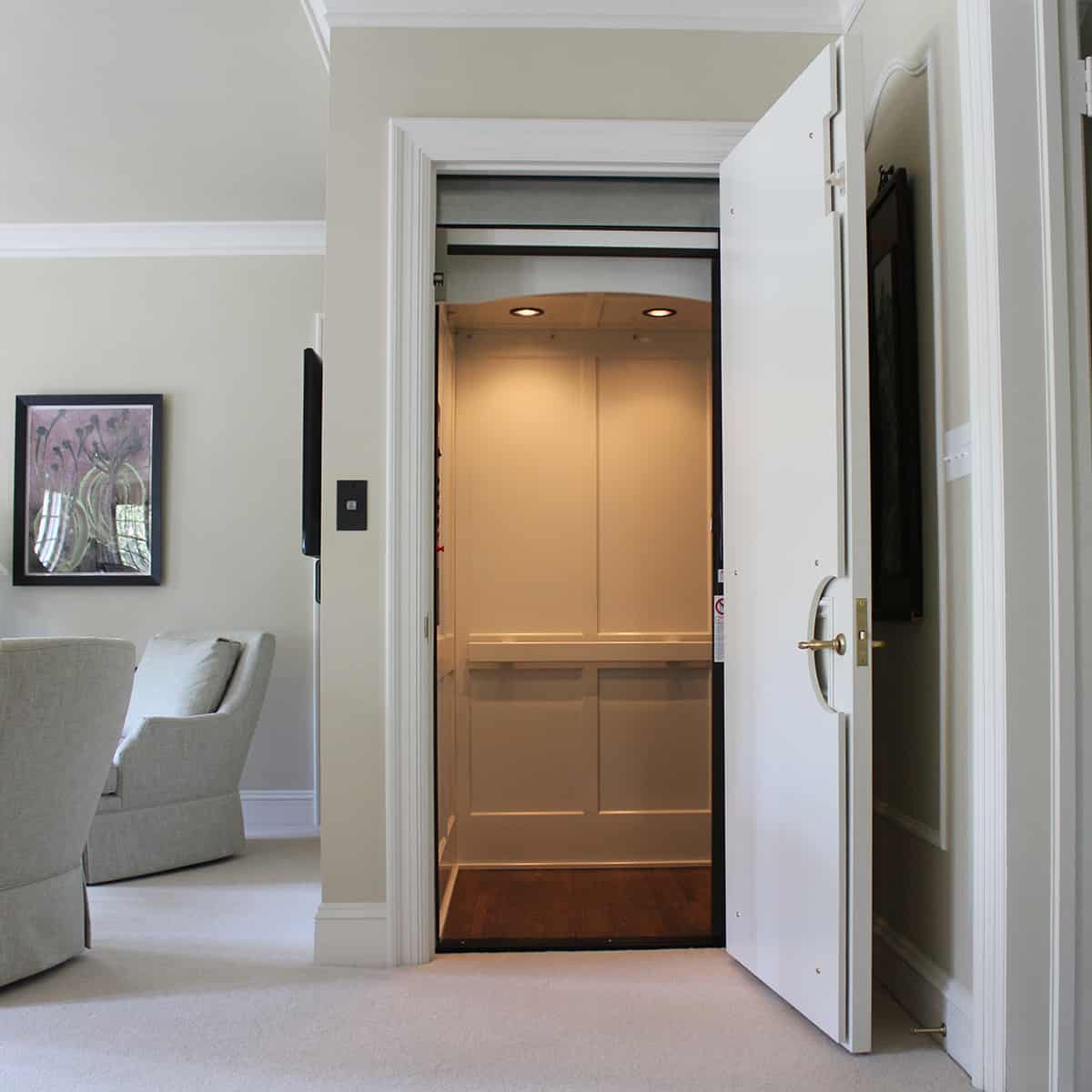 On average, the price of a home elevator starts at about $35,000 and ranges upward to $100,000+, depending upon floors served, the configuration of the elevator cab, design, and other considerations. The prices that we quote for our customers include tax, shipping, and installation fees. Other dealers may list a price that is lower than the price range we have given; however, their price may not include some of the above items.
On average, the price of a home elevator starts at about $35,000 and ranges upward to $100,000+, depending upon floors served, the configuration of the elevator cab, design, and other considerations. The prices that we quote for our customers include tax, shipping, and installation fees. Other dealers may list a price that is lower than the price range we have given; however, their price may not include some of the above items.
Additional costs, such as permits, architectural costs, or the renovations to your home, such as construction, may be required to accommodate an elevator shaft. We have excellent relationships with many building contractors and architects to help your project go smoothly and on time.
To find out and exact cost of adding a residential elevator to your home, please call (888) 714-1930 or contact us for a free quote. Please note that Lifeway Mobility offers residential elevators in select locations only:
- Colorado
- Connecticut
- Chicagoland
- Minnesota
- Ohio (greater Cleveland)
- Pennsylvania (greater Pittsburgh)
- Rhode Island
- Wisconsin (southeast & western WI)
Below we breakdown some of the main factors that impact the cost of a home elevator so that you can better understand how much elevator will cost, depending on the elevator model that is best for your home space and your family's needs.
Types of Home Elevators:
Lifeway Mobility provides and professionally installs both traditional and through the floor (shaft-less) residential elevators.
Through-the-Floor Home Elevators - Pricing
A through the floor elevator is an innovatively designed elevator that literally travels through a floor cut-out without an enclosure around it. This type of home elevator is also referred to as a shaftless elevator and is less expensive than a standard a traditional elevator because it does not require the construction of a hoistway. These types of elevators typically cost between $35,000-$60,000, but can vary based on the manufacturer of the elevator, upgrade options, etc. It also provides more usable space in the home and will blend seamlessly with the décor of any home when not in use. Lifeway Mobility offers the following through the floor elevators from the top manufacturers in the industry
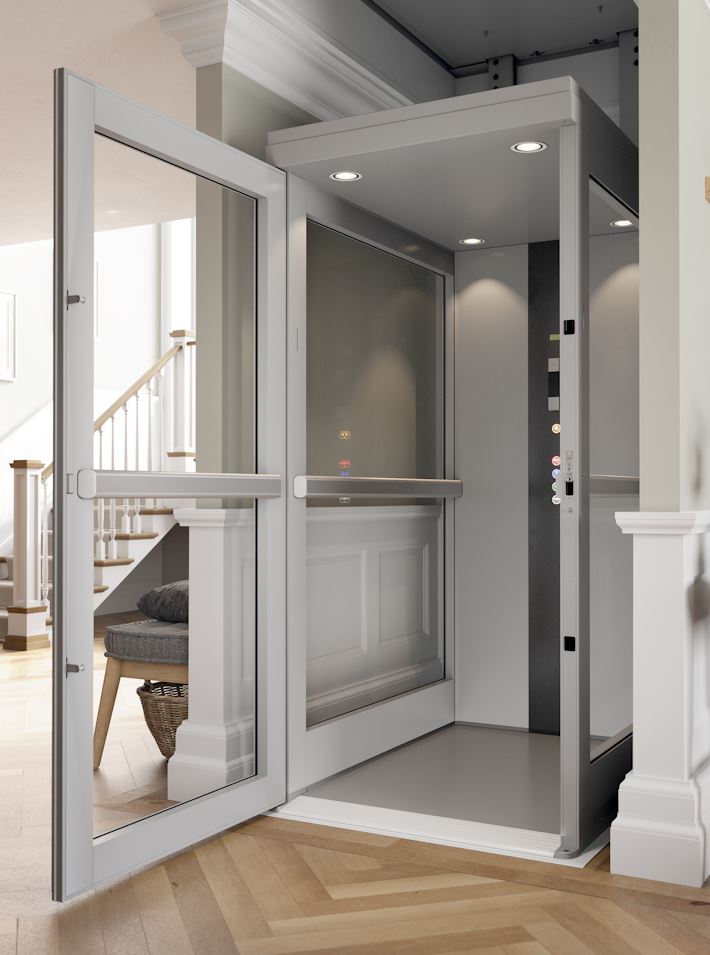 Bruno Connect Home Elevator
Bruno Connect Home Elevator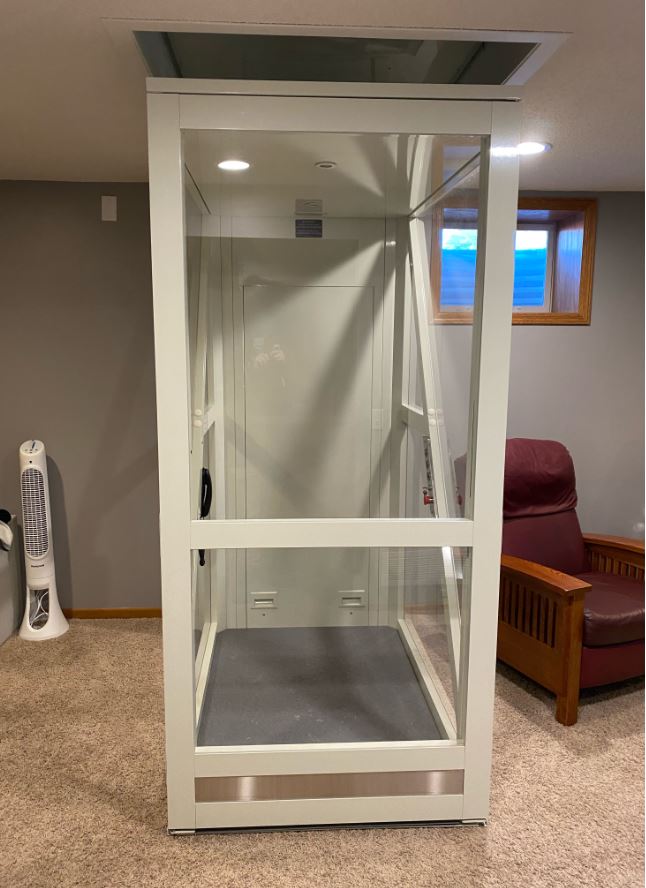 Savaria Telecab
Savaria Telecab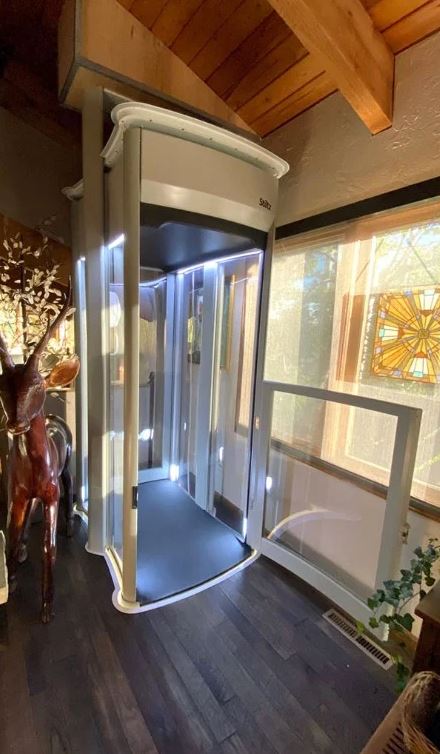 Stiltz Home Elevator
Stiltz Home ElevatorTraditional Home Elevator Cost:
Traditional home elevators are enclosed in a hoistway and when not in use, they can look like a closet from the outside. The brands that we offer for the traditional elevator models are Savaria, Cambridge, and Inclinator. These elevator manufacturers offer several styles and design options, enabling you to pick a design that blends in with the decor of your home. A traditional style home elevator typically starts around $50,000.
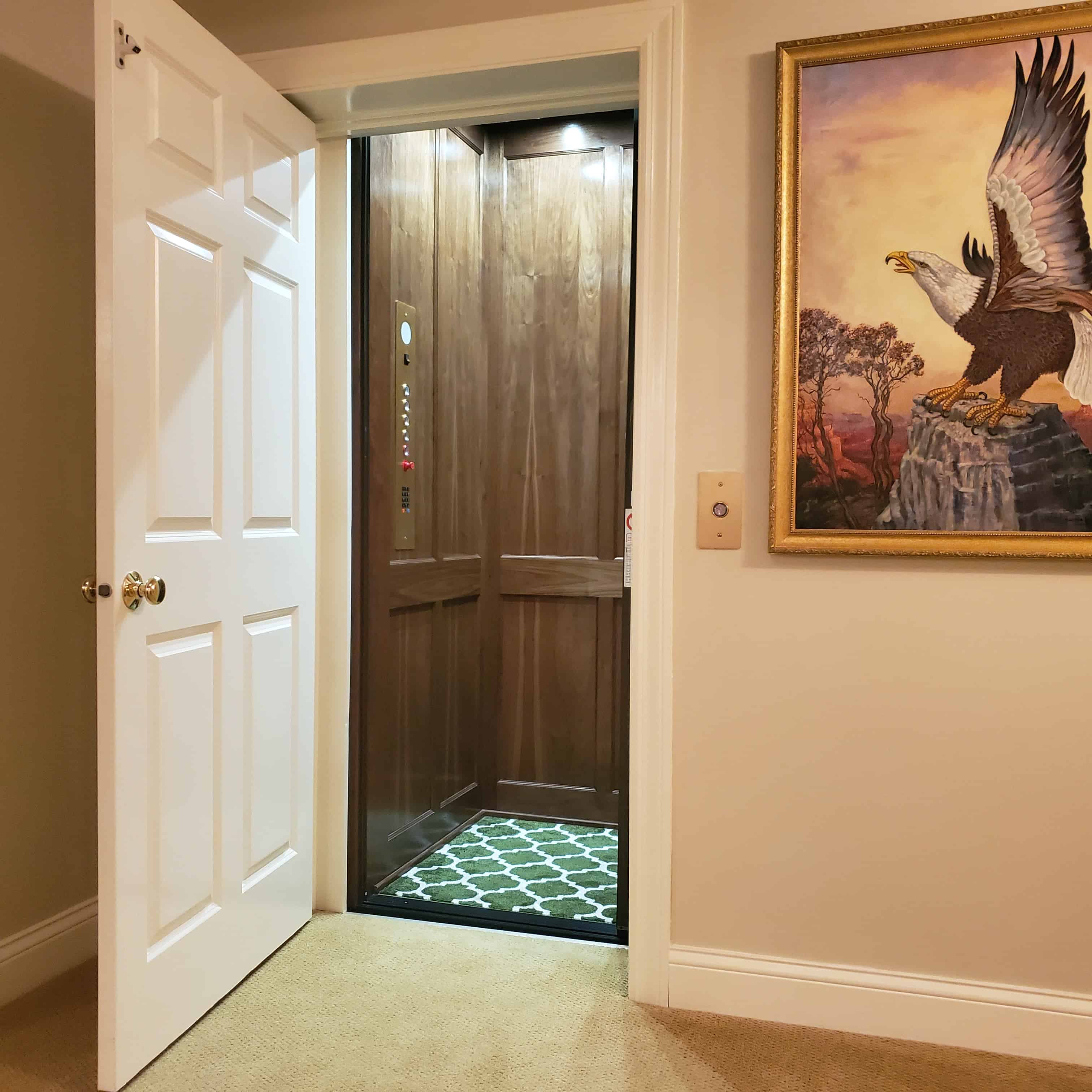
Glass Home Elevator Cost
If you're looking for a modern look that does not require a hoistway, consider the glass acrylic elevator known as the Vuelift from Savaria. These types of elevators are more expensive than both the through-the-floor and traditional types of home elevators, starting around $80,000 and ranging upward from there.
There standard glass style cab is available in a round or octagonal shape and there is a mini version with just one standard size/shape option. While this style of elevator has the highest price tag of the three types of residential elevator models available from Lifeway, it offers a unique panoramic view of your home and will blend beautifully with the design and decor of it.
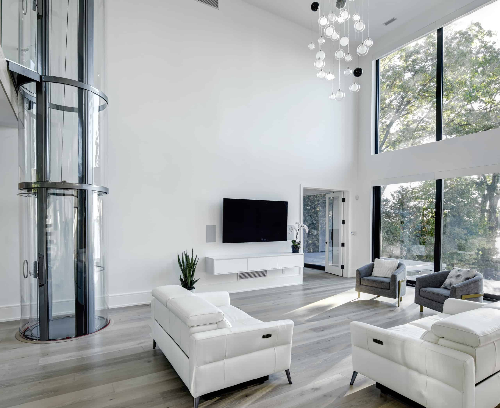
Other Home Elevator Cost Factors
Below are some additional factors to think about as some of these items can have an impact on much you may end up paying for a residential elevator.
Type of Drive System:
The elevator drive systems that are most common for the home elevators we typically offer are:
- geared counterweight
- hydraulic
- winding drum
The type of drive system that is utilized typically does not have a material effect on price.
The Number of Stops and Travel Distance:
The elevators that we install in homes serve between 2 – 6 levels. The cost increases with each additional stop and travel distance. Up to 50 feet of travel is allowed by elevator code.
Car and Landing Configuration:
An elevator car can be designed with one door, opposite doors, or adjacent doors. However, it is most cost-effective for each level to load on the same side of the car if possible. All doors installed by Lifeway are built in compliance with the 3" x 5" or 3/4" x 4" elevator safety rule. The rule selected will depend on the location of the installation and the client's preference.
Type of Gate and Doors:
Lifeway Mobility offers a variety of car gate and landing door options. This includes accordion car gates with decorative solid panels or all-metal panels.
Also available are sliding commercial elevator-style car and landing doors.
Automated Options: the car and landing doors can be provided as fully automatic. This upgrade provides easy access for power chair and wheelchair users.
Elevator Cab: Type of Finish:
There are a number of finish options available for the inside of the elevator cab, including melamine, wood veneer, glass, mirror, décor complimentary millwork and raised panel options.
Please call us at (888) 714-1930 or contact us to get an accurate cost estimate on an elevator for your home and schedule your free in-home consultation.
We will be more than happy to help you get the most accurate price for the model and design that you are interested in and even provide comparisons of more than one model if needed. We can come to your home to provide a free assessment consultation or work with your architect’s plans.
Additional Home Elevator Resources:
